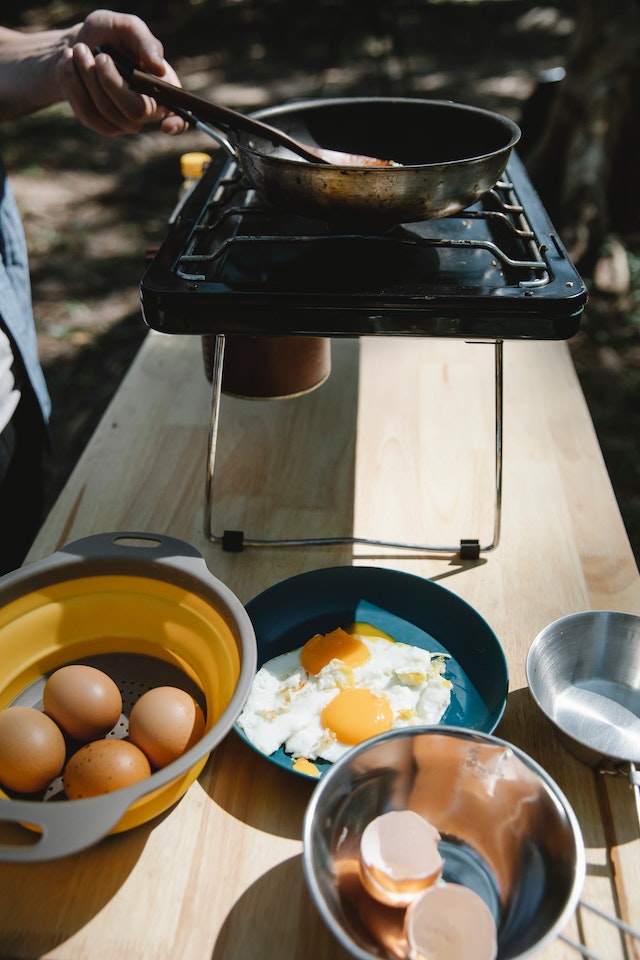Should You Build an Outdoor Kitchen? 10 Pros and Cons to Consider
If you’re passionate about cooking and you have the budget for it, you might consider building an entire outdoor kitchen. Outdoor kitchens are exactly what they sound like – a complete (or semi-complete) outdoor area where you can store food in a fridge, cook it on a stovetop (or grill), and even serve it for guests on a countertop.
Depending on the scope of your outdoor kitchen product, you’ll likely be hooked up to running water, electricity, and even natural gas for all your cooking and cleanup needs.
So should you invest in this fancy addition? What are the pros and cons of this construction?
Pros of an Outdoor Kitchen
Let’s start by looking at some of the best advantages of an outdoor kitchen:
1. Outdoor entertaining. Having an outdoor kitchen gives you an excellent excuse to socialize (or cook by yourself) outdoors. Breathing fresh air is good for you, and gives you an appreciation for nature. If you spend more time outside, you’ll likely be happier and less stressed. As an added bonus, any smoke or fumes produced by your cooking will rapidly dissipate into the air. If you plan on hosting lots of people and cooking for them in real time, this is also an excellent excuse to spend more time with people in the same space.
2. Extra kitchen space. If you typically cook for lots of people, or if you host gatherings where multiple people are cooking simultaneously, you’ve probably felt a need for extra kitchen space. Having extra stove top burners, extra ovens, and extra places where you can store food is a life saver for certain parties.
3. A richer social life. People who have outdoor kitchens want to make use of them, so they’re extra motivated to host gatherings and nurture their social lives. If you’ve been looking for a good excuse to have more people over, an outdoor kitchen could be exactly what you need.
4. Lower energy bills. Having an outdoor kitchen could motivate you to cook more, ultimately increasing your energy bills. But there are some utilitarian advantages of having a kitchen outside. For example, in the summer, the outdoor heat can make it faster for your dishes to reach ideal temperatures, allowing you to expend fewer resources while cooking.
5. Less mess. If you make a mess in your indoor kitchen, it might take several minutes for you to clean it up – and even then, you might miss a spot. But when you’re cooking outdoors, you’ll have much more leniency when it comes to spills and messes. If you spill an ingredient or make a mess while cooking, it’s no big deal; it’s also not a big deal if your guests spill things.
6. Unlimited options. There isn’t just one type of outdoor kitchen. You can build the ideal outdoor kitchen for your needs, mixing and matching different appliances, counter layouts, materials, and more. Regardless of what your preferences are, what your stylistic tastes are, or what kind of functionality you need your kitchen to have, there’s an option available to you.
7. Higher resale value. Outdoor kitchens can significantly increase the resale value of your home. You probably won’t be able to make back all the money you spent on the kitchen this way, but you can offset most of your expenses. If you plan on selling the house eventually, you can consider this a kind of subsidy for your initial costs.
Cons of an Outdoor Kitchen
however, there are some downsides to having an outdoor kitchen:
8. Initial expenses. While you can lean on budget-friendly options, installing an outdoor kitchen isn’t cheap. If you’re working with a limited budget, or if you don’t have an excellent justification for wanting an outdoor kitchen in the first place, the expenses may outweigh the benefits.
9. Maintenance and upkeep. Outdoor kitchens require somewhat more maintenance and upkeep than indoor kitchens. They’re constantly exposed to the elements, and if you use your appliances frequently, they may break down faster.
10. Climate limitations. If you live at or above the Mason-Dixon line, you probably experience harsh, cold winters. That means for three months out of the year, your outdoor kitchen will be practically unusable. You’ll need to consider whether an outdoor kitchen is worth it if you only use it 75 percent of the time.
Ultimately, your decision to build an outdoor kitchen should come down to a couple of questions. Do you love the idea of cooking outside? And can you reasonably afford this investment? If the answer to both questions is yes, the upsides of having an outdoor kitchen should more than outweigh the downsides. Of course, you’ll have to do your own due diligence to make the best decision for your circumstances.

